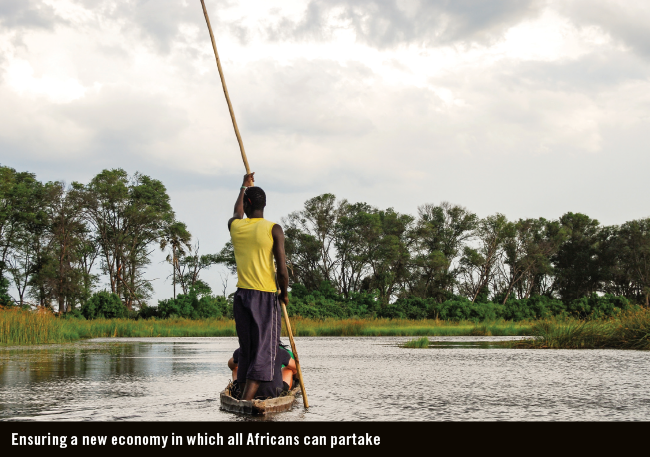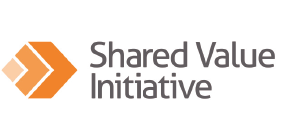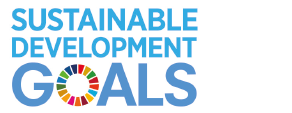How should one respond when one of the most powerful world leaders makes provocative and highly negative comments about developing nations?
When our value and dignity as a nation is under attack, we should look to visionaries such as the late Nelson Mandela who said: ‘In a cynical world, we have become an inspiration to many. We signal that good can be achieved amongst human beings who are prepared to trust.’
THE AFRICA WE WANT
‘A struggle without casualties is no struggle.’ Those famous words by Steve Biko remind us that in times of tension lie some of our most profound paradigm shifts. Transformative change is borne out of struggle and tension. When our sense of value is questioned, we should ask ‘what narrative do we want?’
In 2015, the AU began a narrative titled Agenda 2063: the Africa We Want, which calls on each of us to move beyond what cognitive scientists call similarity biases – a tribal mindset that is averse to diversity.
This narrative begins with a pan-African vision of ‘an integrated, prosperous and peaceful Africa, driven by its own citizens, representing a dynamic force in the international arena’.
TURNING PROBLEMS INTO OPPORTUNITIES
This 2063 vision is not meant to be a romantic delusion ignoring the harsh challenges and struggles ahead. Our once-abundant resources in Africa are rapidly depleting while populations, urbanisation and consumer demands continue to grow rapidly.
We have seen various multinationals and investors pulling back or even completely withdrawing their investments into Africa recently due to corruption; fragmented and underdeveloped consumer markets; poor infrastructure; and a lack of skilled local labour.
Then there is the issue of the largest global workforce – our African youth – without jobs. The continent’s youth are flooding into new African cities in search of opportunities and finding themselves without a source of income.
So how exactly do we turn these problems into thriving opportunities?
The African continent is considered one of the fastest-growing economies in the world, with a 20-year forecast of an estimated consumer spend of $5.6 trillion. We have unimaginable opportunities that could quickly turn against us.
NEW ECONOMY
The new economy is digital and increasingly complex, both offering exponential opportunities and creating unimaginable global systemic risks.
In this new economy, value creation and discovering a unique narrative has never before been more crucial.
Entire industries have become irrelevant and some of the largest multinationals are losing intense market share to start-ups. New and old recruits in the job market fear that machines and artificial intelligence will replace them.
Yesterday’s successes are tomorrow’s failures. This struggle has casualties.
SA economist Lorenzo Fioramonti argues that we need to redefine how we measure value and economic performance in the new economy. Do we really believe GDP growth and other monetary values accurately measure our value as a society?
Prof Michael Porter and Mark Kramer’s shared value business model is better aligned to Africa’s complex economic ecosystem and the new economy. The shared value approach reconnects business success with social progress, positing that it is not only possible but indeed preferable to focus business on creating economic value for both its shareholders as well as for society – summed up succinctly as ‘profit with purpose’.
Shared value shifts a business’ purpose from being an afterthought to being the driver of all business decisions, for the good of both the social agenda and the business’ bottom line. It represents a shift in the business mindset where addressing societal and environmental ills becomes an opportunity for business growth.
Like anything new, this new economy is challenging outdated assumptions – assumptions that often undermine value and relevance in a new economy.
AN AFRICAN NARRATIVE
How are some leaders in Africa succeeding in this new economy, when so many global investors and multinationals are failing?
There are numerous African leaders who are shaping the continent’s creation of shared value in the new economy. Leaders such as Aliko Dangote, Mohammed Dewji and Mo Ibrahim have:
- Identified and grown profitable businesses in response to social problems
- Developed local capabilities and businesses with a global perspective
- Collaborated across multiple geographies and sectors
- Partnered with diverse stakeholders – multi-nationals, global investors, NGOs, governments, and development agencies – to achieve sustainable change
- Built a bold vision that no one thought was possible.
Each of them has invested their own money into driving a more inclusive shared value economy across Africa. They continue to cultivate the lifeblood of our continent’s future, namely the youth and entrepreneurs. Their narrative attracts discerning investors. To unlock this new economy requires not only our rededication to ‘the Africa we want’ but a fearless commitment to changing default behaviours and outdated beliefs.
This is the time as a continent to revisit Biko and Mandela’s narrative in relation to a new economy – creating African shared value for ‘the Africa we want’.
It is with this goal in mind that the Shared Value Africa Initiative (SVAI) – driven by Shift Social Development – focuses on building the continent’s most powerful business network, whereby African leaders work together to break down silos and create a continental ecosystem of profit with purpose.
SVAI membership connects business thought-leaders, entrepreneurs, organisations and companies from across the continent to share insights, collaborate and co-create sustainable, profitable solutions that speak to the African context.
Through the incorporation of social good into business strategy, Africa’s challenges can become a source of great growth and profit – the key to the continent realising its potential in the 21st century.
www.africasharedvaluesummit.com
www.SVAI.africa
www.shiftsocialdevelopment.com














